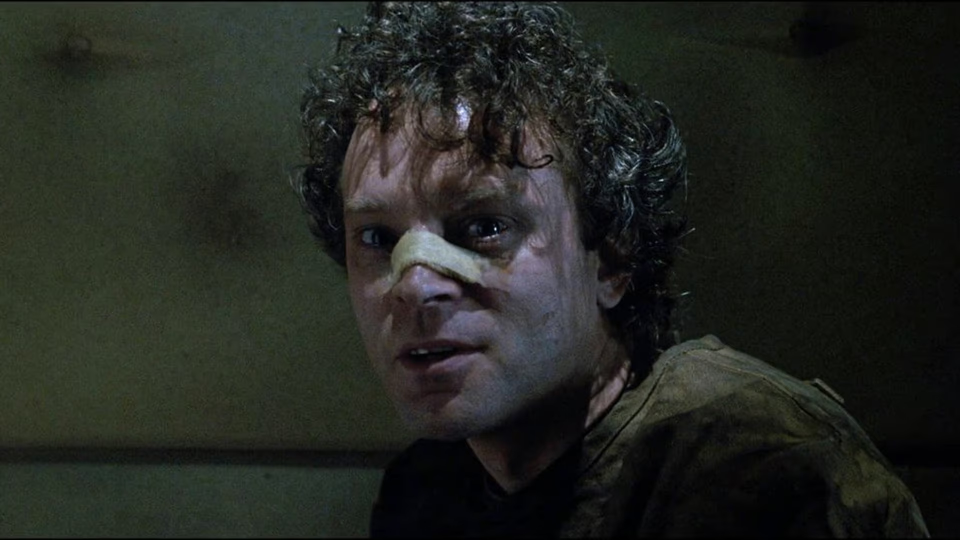The Exorcist III: Legion

Here’s the thing about Legion, William Peter Blatty’s director’s cut of The Exorcist III: It’s a curiosity, not a cure.
The plot remains the same. George C. Scott’s Lt. Kinderman investigates murders that match the M.O. of a killer who died fifteen years ago. The trail leads to a psychiatric ward and a patient who looks like Father Karras. The impossible becomes probable. The dead won’t stay buried.
But this version, stitched together from VHS dailies and theatrical scraps, makes different choices. Some work. Some don’t.
Brad Dourif replaces Jason Miller entirely as Karras. No morphing faces here. Dourif excels at unhinged menace—that’s his gift. But asking us to see him as the gentle priest from the first film? That’s a stretch. He’s all raw nerve and coiled madness. Perfect for the Gemini Killer. Wrong for Karras. Miller’s absence is felt, even if the logic improves.
And the logic does improve. Kinderman orders an exhumation immediately here. In the theatrical cut, he inexplicably doesn’t. Plot hole plugged. New scenes explain how the coffin got buried without Karras inside. Smart fixes.
Other, smaller changes abound. A prologue showing Karras at the morgue following the original film. The lunch scene at The Tombs adds an Eraserhead reference and further grounds the friendship between Kinderman and Father Dyer. These moments breathe.
The big surrender? No exorcism. Nicol Williamson’s third-act priest vanishes entirely. The theatrical version tacked on his ritual like the studio mandate it was. Cutting him streamlines things, but the ending still sags. The Gemini’s endgame feels thin. He wants publicity? That’s it?
Five years later, Seven would show how to spring this trap: force the hero into an impossible moral choice. Make him dirty his hands. Blatty must have kicked himself.
So which version wins? Neither, really. They trade weaknesses. The VHS quality of the restored footage makes comparison awkward. If you loved the theatrical cut, this offers intriguing alternatives. If you didn’t, it won’t convert you.
But Scott remains magnificent throughout—weary, sardonic, haunted. And Blatty’s obsession with faith under siege still resonates. This is a detective story where the case file includes damnation. Legion proves what we suspected: a better movie was lurking inside. But we still haven’t quite found it.